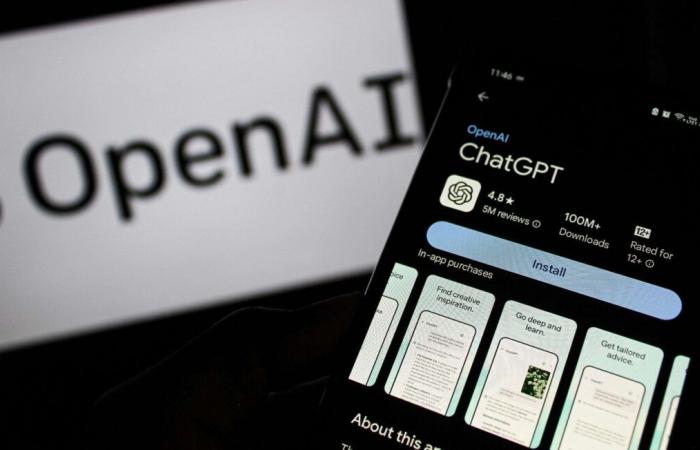
The most famous text generator using artificial intelligence now banned in France? According to a rumor that spread on social networks in December, ChatGPT should have been deleted in the country in recent days, from January 1, 2025.
Particularly viral on TikTok, it was shared in videos accumulating several hundred thousand views. “It’s confirmed, ChatGPT will be removed from 2025”, “They’re taking ChatGPT away from us in 2025”. On the social network, many people were worried about this “information”, some sometimes putting themselves on stage with humor: “Me reconnecting with nature after learning that ChatGPT will be deleted in France in 2025”. In some publications, this “news” is even attributed to a decision by Emmanuel Macron.
FAKE OFF
2025 is now here, and as everyone can test it, ChatGPT is still available in France. This rumor which circulated until the end of 2024 was unfounded.
After research, 20 Minutes n’a have not been able to identify an official statement from the government or the National Commission for Information Technology and Liberties (Cnil) which would attest to a plan to remove access to this tool. As reported by AFP, OpenAI, the American company behind ChatGPT, assures that it “is not aware of any information that could corroborate such an assertion. »
ChatGPT in the sights of the authorities
However, ChatGPT’s compliance with French and European legislation is not without debate. In Europe, Italy had temporarily suspended ChatGPT for four weeks in April 2023. In its press release (here in Italian), the Italian Data Protection Authority noted “the lack of information for users and all interested parties including the data is collected by OpenAI”, but above all “the absence of a legal basis justifying the massive collection and storage of personal data” which are used to train the algorithms. A month later, the ban was lifted, after adjustments that satisfied the Italian authority.
The same year, the French Minister of Digital Transition, Jean-Noël Barrot, affirmed that ChatGPT should not be banned, in an interview with The Tribune where he was invited to react to the ban in Italy. Instead, he proposed “to supervise innovation so that it conforms to the principles to which we are attached”.
In its 2023 action plan, the CNIL, the organization responsible for data protection in France, revealed that it had received several complaints against OpenAI, and the opening of a control procedure. At the European level, it is the EDPS, whose role is to enforce the General Data Protection Regulation (GDPR), which is competent on the subject, and which opened a working group on ChatGPT in 2023. Just recently, Italy once again accused ChatGPT of violating the GDPR. The data protection authority gave OpenAI 30 days to send its observations and give a response, as Numerama points out.





